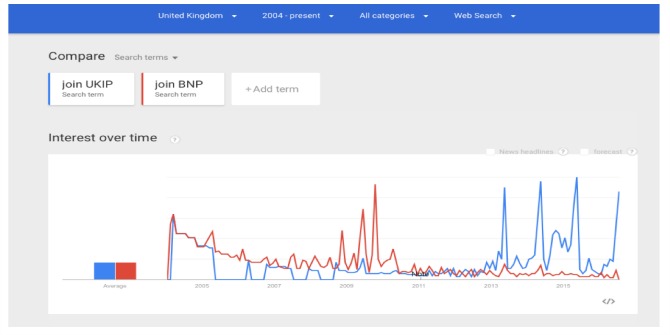 Sarah Quarmby takes a look inside a knowledge broker organisation, the Wales Centre for Public Policy, to see how its day-to-day workings tally with the body of knowledge about evidence use in policymaking.
Sarah Quarmby takes a look inside a knowledge broker organisation, the Wales Centre for Public Policy, to see how its day-to-day workings tally with the body of knowledge about evidence use in policymaking.
There’s widespread and sustained interest in the role of evidence in policymaking. But because policymaking is inherently messy and complex, there’s no catch-all way of making sure evidence gets used. In this context, “knowledge brokers” are increasingly being recognised as a potential way to improve evidence-informed policymaking.
Knowledge brokers are individuals or organisations that bridge the gap between academic research and policymaking. They work to make sure that useful evidence arrives with the right people, in an appropriate format, at an opportune moment. Successful knowledge brokerage is based on building trusting relationships. This requires an intimate knowledge of both academia and policymaking, including their respective values, norms, and incentives. There’s a limited evidence base about knowledge brokers, but preliminary findings suggest that they do have the potential to improve the uptake of evidence.
How does knowledge brokerage work in practice?
For the last six months, I have been working as a Research Assistant at the Wales Centre for Public Policy, an independent research centre based at Cardiff University. The Centre opened in October 2017, building and expanding upon the work of its predecessor, the Public Policy Institute for Wales, and is a member of the UK-wide network of What Works Centres. We work closely with Welsh Government Ministers and public service leaders to help them identify their evidence needs and then facilitate the provision of evidence. In practice, this means guiding a series of projects, each relating to different policy or public service topics, from the initial ideas stage to delivering a final product.
To take the example of the Welsh Government side of our work, projects usually begin by meeting up with Ministers, their special advisors and/or policy officials (under the auspices of the Cabinet Office) to discuss potential areas of work. When we have agreed the kind of evidence they would find useful, we conduct a short review into what’s already known about the topic. From here we can decide whether to do the research in-house, or to commission it out to an external expert. If we’re outsourcing the project, we identify the most appropriate experts and liaise with them to see if they would be interested in working with us.
Each project is different, but our work often involves facilitating and managing relationships between the experts and the Welsh Government, as well as ensuring effective communication so that the final product meets expectations. The form that the evidence produced takes depends on the specifics of each project. It may be a report (for example, see here), an event, workshop, or simply a series of structured conversations between the expert and the Welsh Government.
In this way, we navigate the space between academic researchers and policymakers, who have long been thought of as separate communities. Nathan Caplan’s “Two-Communities” theory is still a useful tool for thinking about how to bridge the gap between academic research and policymaking. He suggests that the research and policymaking worlds operate according to such different value systems and timescales that it is as though they were speaking different languages. Policymakers face political pressures and public scrutiny, and are looking for timely, practical input into policy matters, whereas academics are more interested in longer-term, theory-driven research and are under pressure to publish in academic journals. Caplan pointed to the need for intermediaries who are sympathetic towards both cultures and can mediate to best effect.
Why it is important
Our work at the Centre puts into practice some of the latest research on encouraging evidence use in policymaking. A recent study from the Alliance for Useful Evidence looked at what can be done to put policymakers in a position where they are both able and motivated to make use of evidence, and identified six “mechanisms” to improve evidence uptake. Our approach focuses on four of these: fostering mutual understanding of evidence needs and policy questions, facilitating communication and access to evidence, facilitating interaction between decision-makers and researchers, and building the skillset required to engage with research.
Indeed, the way we operate is informed by a wide range of academic literature on policymaking. For example, we’re currently exploring alternative approaches to presenting evidence. Research suggests that policy-makers often respond to narratives and case studies which show how policies affect individuals’ every-day lives. Advocates of this line of thinking claim that evidence presented in this way is far more likely to be used. The problem with this approach is that it has implications for the need for academic neutrality and we don’t want to risk compromising the Centre’s impartial status.
Knowledge brokerage is a work in progress, but research suggests that it’s important that the early trial and error approach to facilitating the use of evidence in policymaking doesn’t turn into an unsuitable longer-term strategy. For this reason, we’re refining our ‘theory of change’, i.e. what we want to make happen, how we’re going to do it, and how we’re going to measure whether it’s been done. Further down the line this will allow us to assess whether we have been effective, and what approaches have worked better or worse than others. We know that our model works in our context and have a lot of examples from our work with the Welsh Government to support this. But the challenge is to systematise ways of working and collect clear examples of where and why we have been able to have ‘real-world’ impact.
________
Note: the above draws on a presentation that James Downe, Steve Martin, and Sarah Quarmby gave at the International Research Symposium on Public Management at the University of Edinburgh.
 Sarah Quarmby is a Research Assistant at the Wales Centre for Public Policy.
Sarah Quarmby is a Research Assistant at the Wales Centre for Public Policy.
All articles posted on this blog give the views of the author(s), and not the position of LSE British Politics and Policy, nor of the London School of Economics and Political Science. Featured image credit: Pixabay (Public Domain).








Charles
I absolutely agree with you – the debate is led by concerns about bridging the two-communities divide rather than an inclusive community development approach which embraces the different types and depth and knowledge that exist in local communities. Moreover, the knowledge broker is seen to be a remote animator rather than a practitioner embedded in an organisation or an organisation which has a vested interest to benefit all constituents not just its own.
Vipin Chauhan
Interesting question Sarah about whether or not knowledge brokering works. I have just defended my PhD thesis on knowledge brokering as a practice intervention for knowledge sharing. In this I argue that knowledge brokering is a form of practice, not just the bridging of two or more parties by a remote or “neutral” broker. As you argue, academic thinking about knowledge brokering is still evolving. Although recent contributions continue to extend our understandings, gaps remain about how practice interventions actualise knowledge sharing and inform evidence-based decision-making. My study was an action research project in an inter-organisational community of practice in the not-for-profit sector where I was employed as a knowledge worker (broker).
My study examined knowledge brokering from a practice perspective aligned with Brown and Duguid’s (1998, p. 103) analysis that knowledge brokering provides an “enabling architecture” for knowledge sharing, diffusion and application in organisations. This is in contrast to foundational knowledge brokering literature which emphasises the remoteness of knowledge brokers (individuals or organisations) from stakeholder organisations and their status as roving agents operating on the margins rather than as co-practitioners within. The study finds that we need to acknowledge the roles of both niche and incidental knowledge brokers as co-creators and co-practitioners. Niche knowledge brokers can work with incidental knowledge brokers to create dialogical spaces for knowledge sharing and joint actions to increase the intellectual and social capital of organisations. If we acknowledge that knowledge brokering is a form of practice, we can see that knowledge brokering is a value-laden intervention especially in knowledge intensive organisations that provided client-centred, face-to-face services. As a contribution to change processes in organisations, approaching knowledge brokering as a form of practice is important as is the use of participative action research approaches. I believe that the answer to your question about whether or not knowledge brokering works lies partly in understanding knowledge brokering as practice, gathering practice-based evidence through participative research and facilitating communities of practice with the knowledge broker as a co-practitioner.
Reference
Brown, J.S. & Duguid, P., 1998. Organising knowledge. California Management Review, 40(3), pp.90–111.
Thanks Sarah,
I am intrigued by the fact that we seem to face similar challenges even though I am in a developing country while you are in a developed country context. My assumption was that a country’s level of development has a bearing on the quality of its policy makers. That aside, my notion of knowledge brokering is much broader than connecting academics and policy makers but extends to other sources of knowledge outside academia. In Africa, a lot of knowledge exists among farmers, traders, artisans and ordinary people whose experiences and insights enrich knowledge brokering as an ecosystem. For instance, in Zimbabwe policy makers listen more to traditional leaders like chiefs than to university professors or researchers in formal institutions.